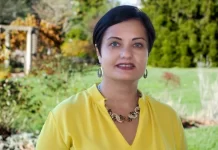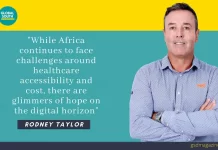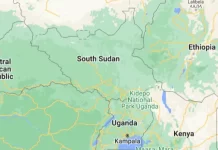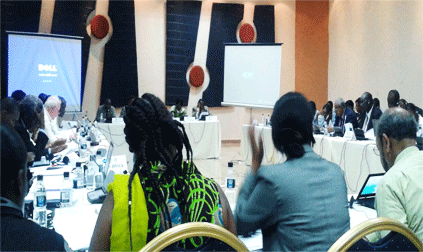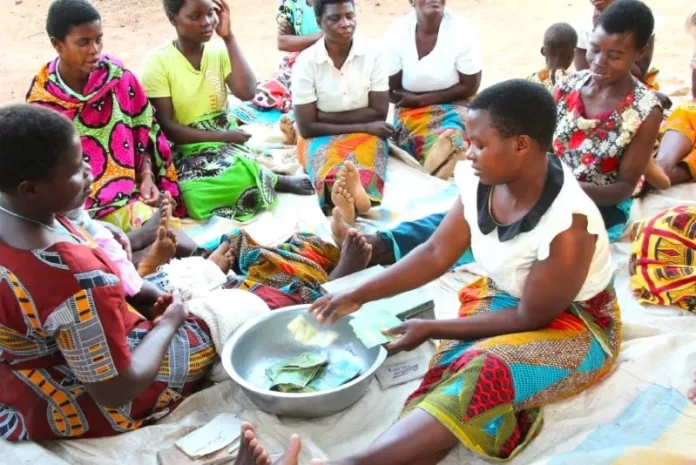
 by Justin Zelenka
by Justin Zelenka
The Malawian dry season of 2012— Chifundo Kamwendo makes her way along the dusty dirt paths that wind their way through her home village of Kalino. Her strong, stocky legs carry her quickly along the paths of her village, while her broad powerful arms— the arms of a farmer— swing stiffly by her side. Her wide-set brown eyes have a determined, concentrated look about them this morning as she hurries on her way. She doesn’t want to be late for the first meeting of the experimental new women’s group in Kalino which she learned about just the other day. To attend the meeting, she is dressed in her favored blue blouse, with a yellow and red patterned chitenge wrapped around her waist, above her white slip-on shoes, the only pair she owns.
As she makes her way briskly to the meeting place, Chifundo passes by a few empty fields, brown and lifeless now during the dry season. The people of rural Malawi don’t order time around the traditional four seasons the way we do in the West. Instead, they give their three primary seasons more evocative names: the rainy season, the hungry season (when the last of the previous year’s harvest has run out), and the harvest season. Right now, southern Malawi is in the depths of the dry season, when the land turns a uniform brown and nothing green can be seen for miles in any direction. The land will not spring back to the green of life for several months, until December or November at the earliest, when the first life-giving rains return to Malawi, heralding the start of the rainy season. Then, Chifundo and her husband, like almost everyone else in Kalino, will again sow their tiny field with maize seed, and pray that the rains would be kind.
Chifundo’s village of Kalino is one of dozens of small villages that lie in a region of south-eastern Malawi, not far from the Mozambican border, known colloquially as Sakata. Nestled in the broad, flat plains between the nearly seven-thousand-foot-tall Zomba massif to the west and the seasonal wetlands of Lake Chilwa to the east, Sakata is one of the poorest regions in all of Malawi, and thus, one of the poorest places in the entire world.
Modern life has passed it by. It is almost entirely bereft of electricity, plumbing, wi-fi, and any other kind of modern infrastructure. There are no paved roads in Sakata. You leave the tarmac behind when you turn off Zomba’s M3 highway and onto the dirt roads of the villages. In the rainy season, the roads turn to liquid, threatening to trap even the hardiest all-wheel drive vehicles in deep puddles and morasses of mud. In the dry season, the ground turns hard and cracked, and a long line of dust hangs in the air behind any car sturdy enough to tackle the ruts and furrows of the local roads.
Like almost everyone in Kalino, a densely packed community of just over a thousand people in the heart of Sakata, Chifundo and her family are subsistence farmers living in extreme poverty. They try to eke out a living during the five month rainy season.
It’s not just the roads that are dusty during the seven-month dry season. When the rains stop, the heavy clay soil of the fields seems to harden and become barren overnight and nothing more can be grown. Like almost everyone in Kalino, a densely packed community of just over a thousand people in the heart of Sakata, Chifundo and her family are subsistence farmers living in extreme poverty. They try to eke out a living during the five month rainy season. Living on the knife’s edge of extreme poverty, Chifundo and her husband can grow just enough to survive through the hungry season… if the rains come steady and true during the wet season. If the rains falter, with no money for irrigation, their crops will soon wither and die. But, if the rains come too hard at once, their crops will wash away. If either of those happens, with no other source of income or savings, Chifundo and her family must depend on government support to survive. This is why they pray for the kindness of the rain.
Chifundo’s parents died years before and she, her husband, and their three young children live in a crumbling two-room mud-brick hut. The roof of their house is made of thatched straw, which leaks more than most of their neighbors because of the several large holes in it, eaten away by the weather and the rats. Chifundo and her family sleep on the dirt floor, in the corner of one room, doing their best to stay dry and clean during the rainy season, when the leaking roof turns part of the floor of their home into mud.
Chifundo’s children have no shoes, and she and her husband each have only one pair, donated to them by some NGO or charity. Like everyone else in Sakata, they try to scratch a living from their tiny field, less than an acre of land in total, bringing in an ever-shrinking maize crop, as their unfertilized land is slowly becoming more and more barren. Because their field is so small and unproductive, Chifundo, like many people living in rural Malawi, takes on odd jobs to earn a little money for her family so that she can buy food during the hungry season.
Chifundo, like all women in rural Malawi, is expected to care for her children almost entirely on her own, and to carry out all of the household chores, like fetching water and cooking, in addition to working in her fields alongside her husband; but she made a bold decision earlier that day. She has left her three children at home with her husband in order to go on her own to attend an important meeting in the center of Kalino. A meeting arranged by an American organization called Villages in Partnership, often referred to as VIP by the people of Sakata. Over the past few years, Chifundo has heard a little bit about the work of VIP. She knows that VIP has dug several wells in Kalino and the surrounding communities, and that they are in the midst of a large project to bring electricity into Kalino to power the maize mill that they have recently built. Once they finish, it will be the first time Kalino has ever been connected to the electrical grid of the nearby city of Zomba, Malawi’s former capital.
Chifundo, almost to the meeting place, passes by a few gnarled trees which break up the monotony of the brown barren fields and provide a little relief from the punishing sun beating down upon her from its perch high in the brilliant, cloudless blue sky. She turns a corner and sees, stretched out on bamboo mats and on the remains of old maize bags, under the shade of a few mango trees, the rest of the women who have been invited to VIP’s experimental meeting. It is a meeting that will change Chifundo’s life and the lives of her family members forever.
The villages of Sakata, in southern Malawi where Chifundo lives, are located in one of the world’s most barren deserts. Even in the heart of Malawi’s rainy season, the desert of Sakata is as dry and desolate as ever, untouched by the rains falling all around it. But, while the climate in southern Malawi does seem to be getting drier every year, in spite of the cyclones that now strike the region with disturbing regularity, the great desert of Sakata is not a physical one like the Sahara, located far to the north, but rather a financial one.
One of the many issues facing Chifundo and the impoverished people of Sakata is a lack of access to financial services. Trapped in their financial desert, with no savings and no ability to invest, the people of Sakata are never able to build up enough wealth to escape from their crippling poverty.
One of the many issues facing Chifundo and the impoverished people of Sakata is a lack of access to financial services. With no banks at all in the villages of Sakata, and the few banks of Zomba too far away to access easily— and not trusted in any case by poor villagers, who have heard too many stories of predatory lenders— credit and even basic savings are almost unknown to the people of Sakata. As a result, most people living there spend what little money they are able to earn, from day labor or selling surplus crops, as quickly as they earn it, living day to day and never building up any savings at all.
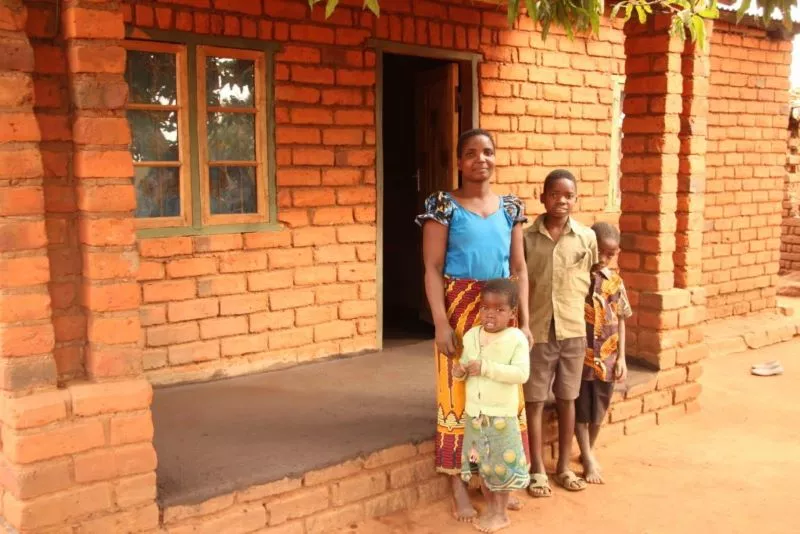
Financial deserts like this are a common problem in impoverished nations. Trapped in their financial desert, with no savings and no ability to invest, the people of Sakata are never able to build up enough wealth to escape from their crippling poverty. And when disasters strike, whether in the form of a storm, drought, illness, or accident, with no money to fall back on, the people of Sakata are left hanging on the edge of subsistence, dependent on the charity of others to survive.
Global attempts to “green” the financial deserts of the world, like Sakata, have largely centered around microfinance and other informal financial institutions. Microfinance banks are a category of financial services which provide individuals and small businesses, who otherwise lack access to conventional banking services, with small loans, insurance, and checking and savings accounts. Rotating savings and credit associations (ROSCA) are another type of informal financial institution very similar to microfinance banks. The biggest difference between them is that in a ROSCA, a group of poor individuals act collectively as an informal financial institution, pooling their money together into a common fund, rather than relying on an outside body to step in and provide credit. Village Savings and Loans Associations (VSLA) are a specific type of ROSCA which were first implemented by the Swiss-based humanitarian aid group CARE International in 1991 to help solve the problem of financial deserts in extremely poor countries.
In 2010, several of CARE’s Malawian VSLA were visited by an unlikely pair: a middle-aged American woman from New Jersey named Liz Heinzel-Nelson and a Malawian development expert named Wellings Mwalabu, who had himself escaped from the extreme poverty of the villages of Sakata. Liz and Mwalabu were the Executive Director and Projects Director of Villages in Partnership, the non-profit organization which had set up the meeting which Chifundo Kamwendo was attending when last we left her.
VIP was founded by Liz Heinzel-Nelson in 2009, the year after she, her husband Stephen, and their two daughters, Terra and Jordan, had lived in Malawi for a year on an extended service trip. Dedicated to wiping out extreme poverty in the villages of Sakata, VIP, under Mwalabu’s guidance, pursues a holistic approach to fighting poverty, one which maintains that progress across all “six critical needs of human development” is essential to ending extreme poverty. One of the six critical needs prioritized by VIP is economic development.
Influenced by their observance of CARE’s VSLA in other parts of Malawi, Mwalabu and Liz made Village Savings and Loan programs (or VSLs as they are known by VIP) a central part of VIP’s economic development program. The purpose of the meeting that Chifundo Kamwendo attended in 2012 was to set up one of VIP’s earliest VSLs in the villages of Sakata.
At that first meeting, and in the many meetings which followed it, Mwalabu and his staff carefully explained the workings of a VSL to Chifundo and the roughly twenty other women gathered in the shade of the mango trees. Mwalabu explained to them how to save money and pool together their savings into a collective “bank,” which he held up for them to see. The bank was a wooden strongbox, which was secured with multiple locks. Once the VSL went into operation, the different individual keys of the strongbox’s locks would be held by different members of the group, and the strongbox itself would be placed in a member’s house who had been elected as an officer of the VSL.
Mwalabu explained that each VSL was self-managed by its members, who act collectively as an institution, but who can also decide as individuals whether they simply want to save their money in a safe space to begin building up savings, access small loans from the group, or even obtain emergency insurance. If any member of the VSL did take out a loan from the communal savings, Mwalabu explained, they were responsible for repaying that loan with interest. At the end of the year, each member of the VSL would receive back the amount they contributed, plus their share of any interest which accrued, which they could then choose to reinvest in the VSL the following year.
When Chifundo Kamwendo was first invited to the exploratory VSL meeting in Kalino, she had been told it was an experimental women’s group. And, as she saw when she sat down to attend the first meeting, the vast majority of the members of VIP’s VSLs— over 96%— were women.
There are two key reasons which account for the very intentional policy of focusing on female membership into VIP’s VSLs. The first is that women in Malawi, like women in many parts of the world, often have less political and financial power than men. In a country where girls and women are expected to carry out the vast majority of domestic work, where girls attend secondary schools and colleges in much lower numbers than boys, where the majority of jobs and businesses are controlled by men, and where child marriage, almost always of girls, is still a huge concern, VSLs are a tool for women’s empowerment. By providing women with a hitherto unknown degree of financial freedom, VSLs allow women to gain more political and social freedom over the course of their lives as well, creating a freer and more equal society.
A second reason that VSLs, as well as other informal financial or microfinance institutions around the world, target mostly women is the widespread belief in the field that women are more financially responsible. Not only are they better at paying back loans, so the conventional wisdom goes, they are also more likely to use saved or borrowed money for the benefit of the entire family.
While many scholars argue that there needs to be more research conducted on the subject before this can be proven conclusively, Nobel Peace Prize winner Mohammad Yunus, founder of the world’s largest microfinance institution, The Grameen Bank, says data gathered by Grameen proves this to be true. Similarly to Yunus’ claims, a study in the Philippines found that when women have control over a couple’s savings accounts, as opposed to men, expenditures shifted towards the purchase of durable goods that had a positive impact on the entire family. A study by MIT economist Esther Duflo found similar results, namely a higher tendency of women towards family-oriented spending when comparing South African grandmothers’ and grandfathers’ usage of their old-age pension funds. This pattern seems to hold true in the United States as well. Sociologist Catherine Kenney found that in low- to moderate-income two-parent US households, children were less likely to experience food insecurity when their parents’ pooled income is controlled by their mother rather than their father.
While many theories attempt to explain this phenomenon— including “motherly instincts,” the fact that women’s traditional domestic roles make them more attuned to the needs of the home than men, and a higher prevalence of impulsive behavior and spending amongst men— the important thing is that there is a great deal of evidence which supports the belief that when money is scarce, it is generally best to have women heavily involved in decisions over a family’s finances.
Therefore, driven by both a desire to empower women and by data which indicated women as more financially responsible, VIP decided to focus on bringing women into their VSL program; women like Chifundo Kamwendo.
At the time that Chifundo received the invitation to attend the first exploratory meeting of the VSL in Kalino, she had given up almost any hope she might have had of changing her life for the better. This is how life was and would always be for her and her family, she thought. Constantly living in that liminal space at the edge of survival, with one small slip all that was needed to bring the family to total ruin.
But, when she learned that VIP was holding a meeting in her village in a few days’ time, with the purpose of forming a new group dedicated to helping women save money, Chifundo thought this might be her last chance to change her life for the better.
After attending that first exploratory meeting, which left her intrigued by the idea of saving money, and impressed with the confidence and know-how of Mwalabu and his staff, Chifundo decided to join what was one of VIP’s earliest VSLs.
Progress for Chifundo in the VSL was slow at first. Because she did not have very much money, it was tough for her to accumulate any large savings. But, with Mwalabu’s guidance, she soon created a system of savings that worked for her. Every time she did “piece work,” the odd jobs available around the villages and trading centers of Sakata, she tried to save a tiny portion of that money, rather than spending it all at once as she always had before, a strategy which made sense when she had nowhere safe to store her money. Little by little, Chifundo increased the amount of money she had saved away in her VSL.
However, the financial elements of VSLs are just one part, albeit an important one, of the groups. VSLs also serve as support groups and centers of innovation inside the villages of Sakata. During their monthly meetings, Chifundo found herself surrounded by more than twenty other intelligent and enterprising women, each with their own dreams and plans for improving their lives and the lives of their families. During meetings, in addition to village gossip and the regular accounting of the VSL, Chifundo and her fellow group members talked with one another about their dreams. They talked about how they would use, or already were using, their savings and loans. Every month, it seemed, another member of the group was using her money to improve her life and the lives of her family members. Some had bought iron sheet roofs for their homes to stop the constant leaks during the rainy season. Others had paid for school fees so that their children could continue going to school. And still others, the ones who intrigued Chifundo the most, had used their capital to start small businesses, which were generating even more money for their families.
Inspired by the other women in her VSL, Chifundo decided that she too would start a small business. She still didn’t have a great deal of money, but she had enough to start out in the most common business in the larger Zomba area: selling food.
Inspired by the other women in her VSL, Chifundo decided that she too would start a small business. She still didn’t have a great deal of money, but she had enough to start out in the most common business in the larger Zomba area: selling food. On most street corners in Zomba, as well as at the larger intersections in Sakata, particularly those near a trading center like Kalino’s maize mill, you can find people selling food. The two most common foods sold on the street corners of the wider Zomba area are roasted corn and something called mandazi. Mandazi is a form of fried bread that originated on the east coast of Africa and spread slowly inwards across the continent. Similar to beignets (without the powdered sugar) the fluffy Malawian donuts are easy to make, cheap, and very tasty, which helps to account for their ubiquity amongst the vendors of Zomba and Sakata.
But Chifundo decided that instead of selling mandazi or roasted corn, which could be found almost everywhere, she would specialize in another cheap product, one whose raw materials were in plentiful supply, but which itself could be found almost nowhere in the villages of Sakata: popcorn.
It was slow going at first, selling a fairly novel product, but Chifundo’s gamble paid off. As one of the only popcorn vendors in the entire region, she soon settled into a comfortable and profitable routine. She would make a large batch of popcorn in the morning and carry it around Kalino, past the line of people gathered at the, now electrified, maize mill, and throughout the surrounding villages, selling to individual customers in little paper bags, which she regularly purchased in bulk. With nothing more than a large pot, some corn kernels, a little oil and salt, and her own two feet, Chifundo was able to create a business that transformed her life and the life of her family.
As she began to earn more and more money from her popcorn business, and the daily survival of her family was no longer in doubt, Chifundo decided it was time to put her money to work for her. She put much of her profit back into her VSL, just as people in the Western world would put their savings into a bank. But she also decided to invest some of it in a riskier, but also potentially higher returning asset, just as people in the Western world might decide to invest in stocks or real estate as their wealth grows. But since there was no stock market in Sakata, and because Chifundo did not yet have enough money to purchase real estate, she invested in the next best thing: livestock. She bought a large sow, with the hopes that the sow would breed, allowing Chifundo to sell the piglets when they got old enough to leave their mother.
This type of income-generating asset investment is common amongst the enterprising members of VIP’s VSLs. Many, like Chifundo, invest in pigs, chickens, goats, and other livestock, while others invest in things we in the West would not immediately see as an investment at all. Some VSL members, particularly those living in villages close to Lake Chilwa, buy boats, which they can then use to fish the waters of the lake. Still others buy bicycles, which allow them to access markets much faster than they ever could by walking. Some VSL members take the idea of bicycles even further and buy motorcycles, something that we in the West would consider more of a frivolous (and potentially dangerous) expense. But in Sakata, a motorcycle is a huge investment. In addition to using their motorcycles to access markets, schools, and medical centers far faster than they otherwise could, people can also use their motorcycles as taxis, generating income by driving people around Sakata and the larger Zomba area.
Chifundo’s investment in her sow paid off just as much as her popcorn business. Her pig has had multiple litters of healthy piglets, which Chifundo sold to neighbors and markets, making even more money.
Today, Chifundo’s life is completely transformed from what it was in 2012. Her children all have shoes of their own and all attend school. They live in a beautiful new house that Chifundo built on their small family compound. Their spacious home, made of kiln-fired brick, is crowned with a metal roof, and its concrete floor is raised more than a foot off of the ground, which keeps all the water and mud out, even during the wet season. Rarest of all in the villages of Sakata, Chifundo’s house has several large glass windows which allow the light to come in during the day, making the house much more of a home than ever before. Chifundo has even found a use for her old, crumbling, thatched-roof house. It’s where she keeps her pigs safe at night.
Chifundo’s life and the lives of her children and husband have been changed forever, because of a group of enterprising women, a locked box full of money, and some small bags of popcorn.


